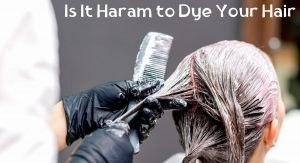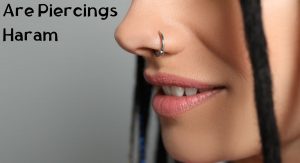Laser hair removal is a widely debated topic within various religious communities, particularly among Muslims, where questions regarding its permissibility or prohibition often arise. The practice of removing unwanted body hair through the use of lasers has become increasingly popular in recent years due to its effectiveness and convenience.
However, its compatibility with Islamic teachings, which place a strong emphasis on modesty and the avoidance of harm, has led to differing opinions among scholars and practitioners. In this article, we will delve into the question of whether laser hair removal is considered “haram” (forbidden) or if it can be deemed acceptable within the framework of Islamic jurisprudence.
To explore this matter thoroughly, we will examine the arguments on both sides and consider the various factors that contribute to the ongoing debate.
What is Laser Hair Removal
Laser hair removal is a medical procedure that uses a concentrated beam of light (laser) to remove unwanted hair. The process involves the following steps:
- Absorption of light: The laser emits a light that is absorbed by the pigment (melanin) in the hair.
- Heat conversion: The light energy is converted to heat, which damages the tube-shaped sacs within the skin (hair follicles) that produce hairs.
- Inhibition of hair growth: The damage to the hair follicles inhibits or delays future hair growth.
Laser hair removal is most effective for people who have light skin and dark hair, but it can be successfully used on all skin types. The procedure is commonly used to remove unwanted hair from areas such as legs, armpits, upper lip, chin, and the bikini line. However, it is not recommended for the eyelid or surrounding area, or on skin with tattoos.
Although laser hair removal effectively delays hair growth for long periods, it usually doesn’t result in permanent hair removal. Multiple treatments are needed for initial hair removal, and maintenance treatments might be required as well.
Some possible side effects of laser hair removal include blistering, herpes simplex (cold sores) outbreaks, infections, scarring, skin lightening or darkening. Before undergoing laser hair removal, it is essential to follow the doctor’s advice for preparing for the treatment, such as staying out of the sun and avoiding other hair removal methods. It is also crucial to choose a board-certified doctor who is trained in laser hair removal to oversee the treatment.
Is Laser Hair Removal Haram
Laser hair removal is a modern cosmetic procedure that has become increasingly popular for its convenience in managing unwanted hair. However, in Islam, questions often arise about whether such procedures are halal (permissible) or haram (forbidden), given the religious doctrines surrounding personal grooming, body modification, and modesty. This article explores the Islamic viewpoints and varying interpretations concerning laser hair removal, delving into religious teachings, ethical concerns, and scholarly perspectives.
Scholarly Interpretations
Some Islamic scholars view laser hair removal as permissible if it is done for beautification purposes. This view equates laser hair removal with other forms of hair removal like shaving or plucking, which are generally accepted in Islam for hygiene and adornment.
These scholars often reference Hadiths that discuss personal grooming and hygiene, suggesting that maintaining cleanliness and beauty is encouraged in Islam.
They compare laser hair removal with traditional methods like shaving or waxing. Since these methods are widely accepted for removing unwanted hair, some scholars extend this permissibility to laser hair removal, considering it a more advanced and long-lasting method of achieving the same goal.
They reference a hadith that curses women who pluck their eyebrows and those who tattoo themselves, interpreting it to mean that only permanent and irreversible changes are forbidden, while temporary and reversible ones are allowed, thus making laser hair removal a halal option.
Narrated ‘Abdullah: that the Prophet cursed the women who practice tattooing and those who seek to be tattooed, the women who remove hair from their faces seeking beautification by changing the creation of Allah.
Jami` at-Tirmidhi 2782
Conditions and Limitations for Laser Hair Removal in Islam
While there is some level of permissibility for laser hair removal, it is subject to specific conditions and limitations that align with Islamic principles and teachings.
- Beautification vs. Vanity: The procedure should be intended for personal hygiene or beautification within the bounds of modesty, not for vanity or imitating the opposite gender.
- Avoiding Excessive Alteration: The intention should not be to excessively alter Allah’s creation, as this could be seen as challenging the natural form that Allah has bestowed upon an individual.
- Prohibited Areas: Certain areas like the eyebrows for women and the beard for men are generally off-limits for hair removal in Islam, as altering them is often seen as changing the natural creation of Allah.
- Permissible Areas: Removal of hair from other body parts, especially those where hygiene is a concern (like underarms or pubic areas), is generally considered permissible.
- Practitioner’s Gender: The gender of the practitioner performing the laser hair removal is important. Ideally, it should be someone of the same gender to maintain modesty, especially when dealing with private areas of the body.
- Modesty During Procedure: The procedure should be conducted in a manner that upholds Islamic principles of modesty. Unnecessary exposure of the ‘awrah (private parts) should be avoided.
- No Harm Principle: The procedure should not cause harm to the individual. If laser hair removal is proven to be safe and does not have adverse health implications, it is more likely to be permissible.
- Medical Advice: Consulting with medical professionals about the safety and potential risks of laser hair removal is advised.
- Consent and Comfort: It’s important that the individual undergoing the treatment is doing so out of their own free will and comfort.
- Adornment for Spouses: It is permissible and even desirable for a wife to remove her body hair to adorn herself for her husband, using methods like shaving, plucking, or hair removal creams. This practice, however, should not involve harmful procedures or the exposure of ‘awrah inappropriately.
Frequently Asked Questions
1. Is laser hair removal permanent?
Laser hair removal is not necessarily permanent, but it is a long-lasting form of hair removal that damages or destroys the hair follicle. The hair may regrow, particularly if the follicle is damaged and not destroyed during the laser hair removal procedure. For this reason, many doctors now refer to laser hair removal as long-term hair removal rather than permanent hair removal. Multiple laser hair removal treatments are needed for initial hair removal, and maintenance treatments might be needed as well.
2. Is laser hair removal safe for private parts?
Yes, laser hair removal is generally safe for private parts, including the bikini area and genitals. Laser hair removal uses a medical-grade laser to target the hair follicles beneath the skin’s surface, and it is usually safe and effective for women of all skin tones. However, there are potential risks associated with the procedure, such as temporary irritation, redness, and changes in skin color. It is important to follow the pre- and post-treatment instructions provided by the healthcare provider to minimize the risk of side effects.
3. Is laser hair removal painful?
Laser hair removal can be painful, but the level of pain varies depending on the area of the body being treated and the individual’s pain tolerance. According to dermatologists, the most painful areas for laser hair removal are the underarms and bikini line, while the legs are relatively pain-free. The pain is often described as a rubber band snapping against the skin. Topical numbing cream can be used to reduce the pain, and some individuals may not need it at all. After the procedure, temporary discomfort, redness, and swelling may occur, but these side effects are mild and usually dissipate within 24 hours.








